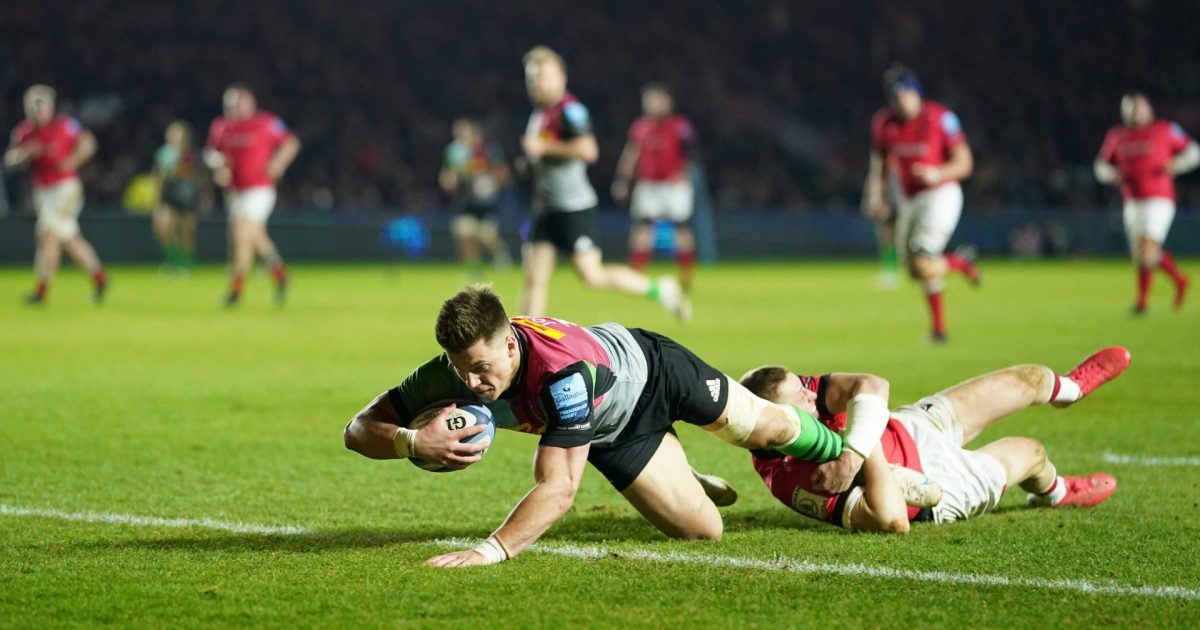Cadan Murley scored two tries as Gallagher Premiership champions Harlequins defeated Newcastle Falcons 24-10 to record their third win in a row.
Quins have claimed the full five points in each of those victories, although the final score here makes the game look more comfortable for them than it was against a team who have now lost their last eight league matches.
It came down to the hosts being more clinical in taking their chances when they came as the Falcons, who had more possession, let a string of them slip away.
Harlequins opened the scoring in the fifth minute when fly-half Tommy Allan made a superb break from halfway that took him towards the left wing, with his pass inside giving Huw Jones an easy run-in.
Allan added the conversion for good measure, with the hosts going on to comfortably repel Newcastle’s attempt at responding to their early setback.
The Falcons turned down the chance to get on the board with a simple penalty from in front of the posts and quickly rued that decision when George McGuigan knocked on after tapping and going.
It was a decision they did not repeat, as Will Haydon-Wood did get them off the mark after another penalty from short range was awarded.
Having had little of the ball for around 15 minutes, Quins reasserted themselves just before the half-hour when Danny Care received possession out of a driving maul before his pass allowed Murley to burst over the line.
Try number three for the hosts arrived in the 32nd minute as Tyrone Green received Andre Esterhuizen’s pass before using his pace down the right and putting Louis Lynagh in the clear.
Newcastle did get a score back just before half-time as Tom Marshall, making his first Premiership start, burrowed over after Haydon-Wood, who then converted, had been tackled just short of the line.
That closed the gap to 19-10 at the break and Harlequins then had Luke Northmore sent to the sin bin after 53 minutes for a deliberate knock-on.
He was soon joined there by Care, who tackled an opponent without the ball metres from his own line two minutes later.
With the Falcons temporarily having a two-man advantage, Haydon-Wood then knocked on over the try line in trying to stretch an arm over it to score.
Quins survived their period of being down to 13 men and they went on to secure the bonus point in the 69th minute when Murley was put in at the corner down the left by the restored Care for his second try of the night.
That finally drew the sting out of the contest as far as the hosts were concerned, as the visitors were left to wonder what might have been.





























































































